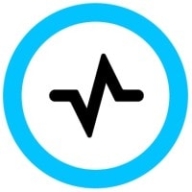

ManageEngine EventLog Analyzer and Graylog Enterprise are solutions in the log management category, competing to provide robust and efficient capabilities. Graylog Enterprise holds a slight advantage due to its comprehensive feature set, making it an appealing option for those companies prioritizing advanced functionality.
Features: ManageEngine EventLog Analyzer efficiently handles real-time log collection and analysis, ensuring robust compliance reporting. Its user-friendly integration with other ManageEngine products is notable alongside its alert configuration capabilities. Graylog Enterprise, however, excels in scalability, with powerful search capabilities and the ability to centralize logs effectively. Its flexibility, with features like real-time UDP/GELF logging and search functionalities, makes it a strong contender.
Room for Improvement: ManageEngine EventLog Analyzer could enhance its search capabilities and scalability to better cater to larger organizations. It may also benefit from additional plugins to increase compatibility with third-party applications. While Graylog Enterprise offers robust functionality, an improvement in initial deployment simplicity and more intuitive configuration settings would enhance its user experience. Additionally, offering better integration with some enterprise-grade tools could further increase its appeal.
Ease of Deployment and Customer Service: ManageEngine EventLog Analyzer is known for its straightforward deployment and responsive customer service team. It provides a seamless onboarding experience, catering to immediate operational needs. Graylog Enterprise, while initially more complex to set up, compensates with comprehensive tutorials and strong community support that enrich the learning process and eventual operation, especially for those prioritizing scalability and in-depth log management.
Pricing and ROI: ManageEngine EventLog Analyzer stands out with cost-effective pricing options and competitive setup costs that provide a high return on investment by keeping total cost of ownership low. In contrast, Graylog Enterprise, although generally more expensive, offers a robust feature set that often justifies its price by delivering long-term ROI for larger-scale operations needing advanced analytics and scalability.
| Product | Market Share (%) |
|---|---|
| Graylog Enterprise | 5.0% |
| ManageEngine EventLog Analyzer | 1.0% |
| Other | 94.0% |

| Company Size | Count |
|---|---|
| Small Business | 9 |
| Midsize Enterprise | 5 |
| Large Enterprise | 8 |
| Company Size | Count |
|---|---|
| Small Business | 4 |
| Midsize Enterprise | 7 |
| Large Enterprise | 2 |
Graylog Enterprise, recognized for log collection, real-time search, and enriched data handling, offers an open-source framework that integrates seamlessly with Elasticsearch. Its user-centric interface streamlines data correlation and log aggregation, supporting both backend services and comprehensive monitoring needs.
Graylog Enterprise stands out for its stability and powerful log management capabilities, facilitating efficient log aggregation, real-time updates, and data analytics. Users benefit from its plugin-based alerting, user-friendly interface, and support for microservices, including Docker integration. The ability to search in detail, flexible API integration, and data enrichment features are highly valued. Challenges include collector application issues, desired visualization enhancements, and authentication integration improvements. Users seek advancements in UI customization, backup functions, and easier rule creation.
What are Graylog Enterprise's most important features?In industrial use, Graylog Enterprise is crucial for audit trailing in financial sectors, facilitating security event identification and error monitoring. Backend teams leverage real-time analytics for swift issue resolution, while developers appreciate the comprehensive log visualization enabled by Docker integration for microservice management.
Your organizations IT infrastructure generate huge amount of logs every day and these machine generated logs have vital information that can provide powerful insights and network security intelligence into user behaviors, network anomalies, system downtime, policy violations, internal threats, regulatory compliance, etc. However, the task of analyzing these event logs and syslogs without automated log analyzer tools can be both time-consuming and painful if done manually.
EventLog Analyzer provides the most cost-effective Security Information and Event Management (SIEM) software on the market. Using this Log Analyzer software, organizations can automate the entire process of managing terabytes of machine generated logs by collecting, analyzing, correlating, searching, reporting, and archiving from one central location. This event log analyzer software helps to monitor file integrity, conduct log forensics analysis, monitor privileged users and comply to different compliance regulatory bodies by intelligently analyzing your logs and instantly generating a variety of reports like user activity reports, historical trend reports, and more.
We monitor all Log Management reviews to prevent fraudulent reviews and keep review quality high. We do not post reviews by company employees or direct competitors. We validate each review for authenticity via cross-reference with LinkedIn, and personal follow-up with the reviewer when necessary.